The complete guide:
Taking care of your mental well-being before and during your wedding
A wedding is an exciting event, but there can also be some stress in the run-up to the big day, as well as when it arrives.
This guide will help engaged people deal with their feelings and pre-wedding anxieties, while helping them take care of themselves during this important life change.

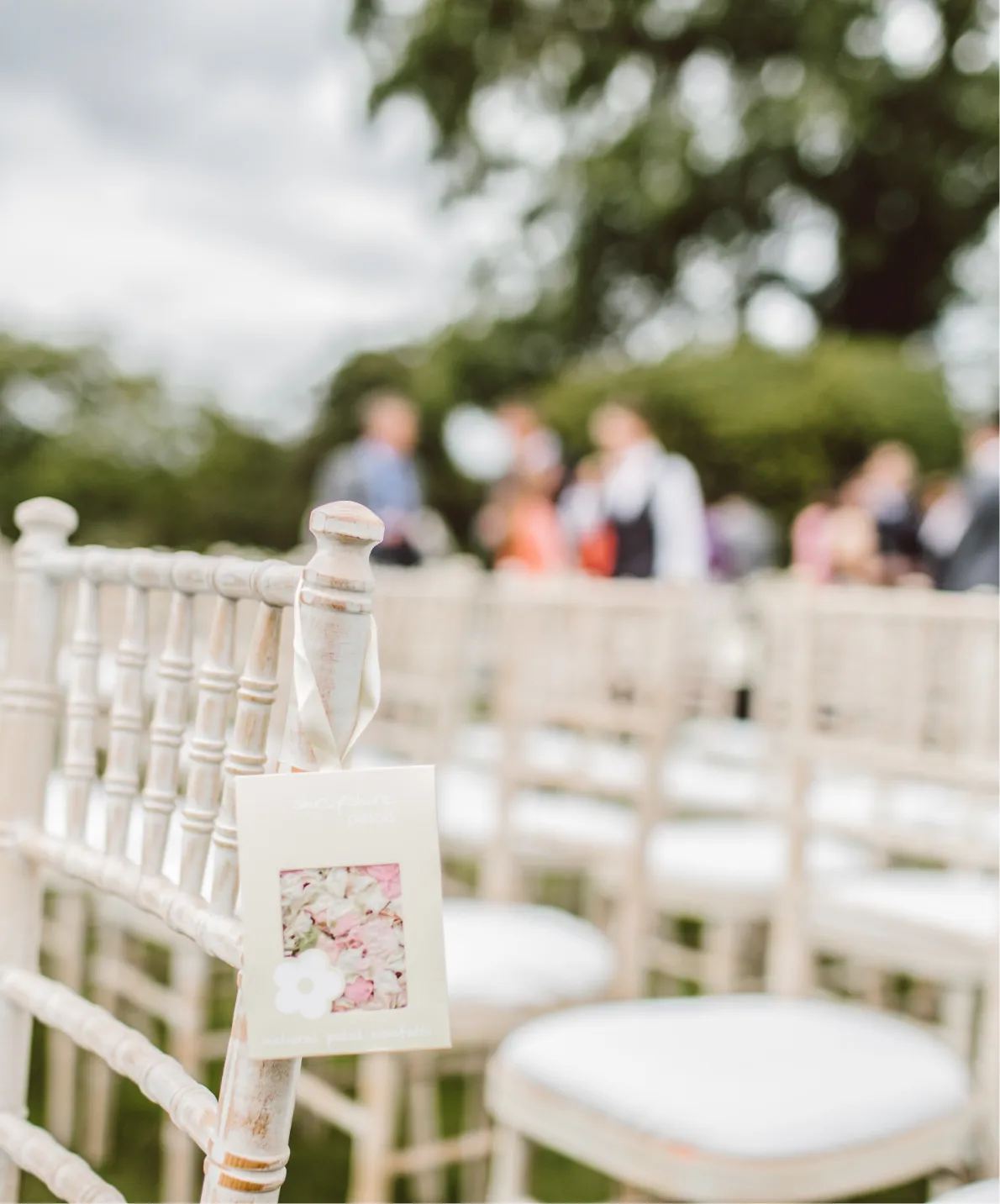
Contents

An introduction to mental well-being
What is mental well-being?
Mental well-being doesn’t have one official definition. However, Lexico defines well-being as “the state of being comfortable, healthy, or happy” and it is closely linked to mental health.
The World Health Organisation (WHO) defines mental health as “a state of well-being in which an individual realises his or her own abilities, can cope with the normal stresses of life, can work productively, and is able to make a contribution to his or her community.”
The charity Mind notes that good mental wellbeing doesn’t mean you’re always happy, or unaffected by the things you experience. But you are better equipped to deal with any stressors life throws your way.
“A state of well-being in which an individual realises his or her own abilities...
Mental well-being data
Given how tricky it can be to define well-being, researchers take a rounded approach.
For example, the most recent government research into personal well-being looks at factors like life satisfaction, happiness, feeling life is worthwhile, and anxiety. The data shows that life satisfaction, happiness, and feeling life is worthwhile have all started to increase now the pandemic isn’t as prevalent, while anxiety levels have fallen.
Well-being of people in the United Kingdom from 1st quarter 2012 to 2nd quarter 2021

(source: Statista)
Another survey of engaged and newlywed couples found that for 34%, at least one partner was dealing with mental health struggles in the wake of the pandemic, affecting the usual milestones of wedding planning. On a more positive note, 92% found ways to remain hopeful, and 82% found support from their partner.
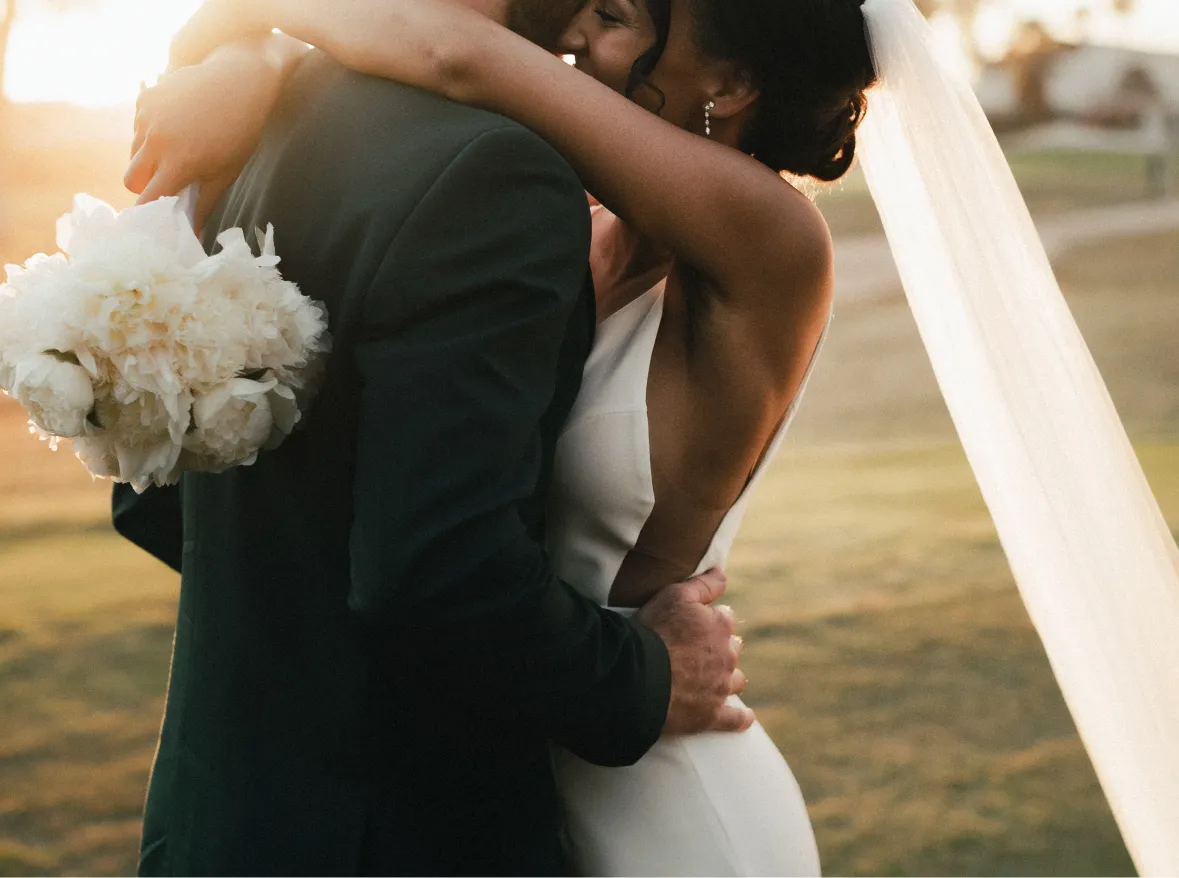
Common wedding stressors and how to handle them
Whether it’s making your expectations clear to family members or finalising the details of your big day, wedding planning can be a source of stress as well as excitement. Here are some common wedding stressors you might encounter, and how to handle them while taking care of your well-being.
Announcing the engagement
Being newly engaged is a wonderful feeling. Some couples like to keep it to themselves for a little while; others can’t wait to rush out and tell everyone.
Once it’s starting to sink in and you do begin sharing the news, you may worry people will find out before you tell them. To minimise the risk of this:
Tell the people you’re closest to first. This could be immediate family, like parents, grandparents and siblings, plus close friends.
Think about whether there’s anyone else who’d be upset to find out about the engagement from someone else, or a social media post, and not from you directly, and tell them too.
Share your happy news with the wider world. You may choose to do this on social media, but be careful with your wording so you don’t give the impression everyone is invited to the wedding or any other celebrations. Keep it light, happy and brief. And be careful with the timing, too - make sure it doesn’t clash with any big life events your friends or family might have on the day.
The planning stage
Once the initial excitement of the engagement has simmered down a little, it’s natural to turn your thoughts to planning your wedding day. But there are a lot of components to consider. In one survey of engaged and newlywed couples, 72% described wedding planning as “very” or “extremely” stressful.
Here are some of the most anxiety-inducing elements of wedding planning and how you can reduce stress when you deal with them.
Money
Whether you’re hosting an intimate wedding or a large celebration, there are a lot of elements you need to factor into your budget, from venue hire and catering to music and decorations. These costs can add up quickly, so it will save a lot of stress if you decide on a budget before doing anything else.
Take time to research average costs within the wedding industry so your expectations are realistic. And be prepared to compromise - it helps to make a list of your must-haves and your nice-to-haves. That way, you can put your money towards what’s most important to you as a couple.
In one survey of engaged and newlywed couples, 72% described wedding planning as “very” or “extremely” stressful.
Costs you need to consider include:

The Venue

Service fees at the venue

The registrar

Accommodation

Transport

Catering, alcohol and cake

Clothing, shoes and accessories

Hair and make-up

Rings

Flowers

Decoration

Entertainment

Photography

Videography

Registrar fees

Favours and gifts
Hitched has a useful, in-depth guide to creating your wedding budget. There are also plenty of free wedding budget templates available online.
Family expectations
As well-meaning as they might be, family members may have very specific ideas about what your wedding should be, and these won’t always match up with yours. Take the time to listen and understand where they’re coming from, but make your priorities and expectations as a couple as clear as possible from the beginning.
If a parent or relative does try to insist things should be done their way, be prepared to stand your ground, politely but firmly. Thank them for caring so much, recognise any ideas that are genuinely helpful, then explain why you won’t be including the rest.
Ultimately, the day is meant to be about love and celebration - gently remind everyone of this if things start to get heated.
Choosing the bridal party and guest list
While choosing your bridal party and guest list should be fun in theory, in practice it may result in a bit of a headache. You might worry about hurting people’s feelings, or feel pressure from relatives to include certain members of your family.
Bridal party
Start by making a list of everyone you feel very close to - choosing your bridal party may be as simple as that. If not, here are some things to consider when you make your decisions:
-
How big is your budget? How much can you spend on suits and dresses?
-
Can the person be relied on to show up for you when you need them?
-
Does the person find it easy to get along with others?
Once you’ve chosen your party, be honest with them about the role you’d like them to play on your wedding day and in the build-up to it. People who live further away or have particularly busy schedules may not be able to contribute as much as those who live closer and have more availability, so balance duties accordingly.
Guest list
First, you and your partner can make an initial list of everyone you’d definitely like to invite. While this probably won’t cover the entire guest list, it gives you a solid starting point.
Next, decide how much of your extended family you’d both like to invite. You could set a cut-off point, depending on how big both your families are and who you see or speak to.
Another important decision is whether you’d like to invite children. There are pros and cons for both options. Ultimately, it comes down to your feelings as a couple and any practicalities you need to consider (some venues may not cater for children).
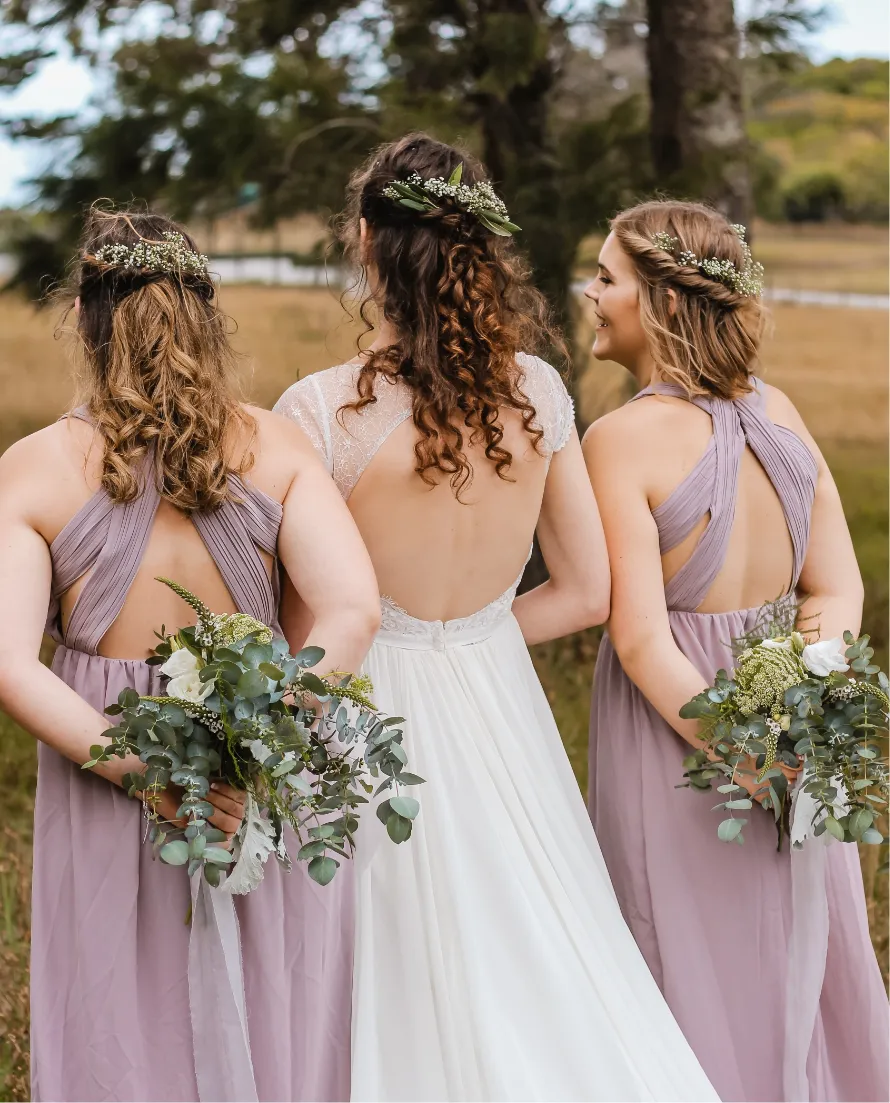
While choosing your bridal party and guest list should be fun in theory, in practice it may result in a bit of a headache.
Choosing whether to invite children to your wedding: pros and cons
Inviting children to your wedding
| Pros | Cons |
|---|---|
| Guests with children are more likely to be able to attend, as they won’t have to arrange childcare | Guests with children may have to leave earlier than they would have otherwise |
| There’s something very heartwarming about seeing children in their wedding clothes for the big day | Children can be disruptive during quieter moments, such as the ceremony or speeches |
| There may be some young relatives you can’t imagine having your wedding without | You may need to factor entertainment for children into your budget, like activity packs or board games |
| Guests with children may not be able to unwind in the same way, as they’ll need to look after their little ones | |
Child free wedding
| Pros | Cons |
|---|---|
| Your ceremony and speeches won’t be interrupted | Some guests may be offended by your decision |
| Guests can fully relax and not worry about looking after their children | Some parents may not be able to travel away from their children (for example, if they have a very young baby) |
| You can invite more adults because there’ll be more space on the guest list | Some guests may be late or not arrive at all (if there are issues with the babysitter, for example) |
| You won’t have to factor entertainment for children into the budget | |
| It may be easier to choose a venue, as some aren’t suitable for young children (they might have slippery cobbles or a lake with no railings, for example) |
Each wedding is different, so there isn’t one ‘correct’ option. It’s simply down to what’s right for you as a couple.
Whatever you decide, make it clear who’s invited by stating each person’s name on the invitation, rather than writing something vague like “The Smith family.” Include the number of seats you’ve reserved on the RSVP card, too.
If you’ve decided on a child-free wedding and someone asks why children aren’t invited, respond politely, but be firm in your decision, and make it clear as early as possible. Example responses include:
“Due to venue restrictions, we cannot invite under 18s to the wedding.”
“Due to budget restrictions, we cannot invite children to the wedding.”
“We will not be able to invite children to the wedding.”
“We’d love to have you there, but we are not going to have children present.”
“Although we love your little ones, our wedding will be adult-only.”
Finally, you need to think about whether you’ll offer any of your guests a plus-one. This is the kind of decision you can make on a case-by-case basis. A general rule is that if a guest is in a serious relationship, for example if they are living together or have been together for a year or more, their partner should be invited. You may have heard the saying ‘No ring, no bring’, but this can be controversial as it doesn’t take into account how long a couple has been together, or those who have simply chosen not to get married.
Questions to ask about people when you narrow down the guest list:
Q. Have you met them?
Q. When was the last time you saw them?
Q. Did they reach out to congratulate you about your engagement?
Q. Do you keep in regular contact? How much do you know about their day-to-day life? Are they part of yours?
Q. Are they likely to be part of your life in future?
Q. Do you see them for occasions like Christmas or birthdays?
Q. Is the rest of their family invited?
Q. If you work together, would you be happy seeing them outside of work?
Q. Would you be comfortable around them on the day?
Don’t forget to keep the venue’s capacity in mind when you’re choosing your guest list. The final number may help you make a few decisions.

Don’t forget to keep the venue’s capacity in mind when you’re choosing your guest list. The final number may help you make a few decisions.
Choosing the right suppliers
Booking reliable suppliers makes wedding planning much easier. But you may not know where to look for them. Here’s where you can start:
-
Look through a wedding supplier directory.
-
Look at weddings online and if you like what they’ve done, see if they credited the suppliers.
-
Search social media platforms like Instagram and Pinterest for inspiration. You can save the images that speak to you for inspiration and future reference.
-
If you’ve chosen a venue, ask if they have any suppliers they’d recommend.
-
Ask friends and acquaintances if they have any recommendations.
Make a list of promising suppliers, then look through their website, testimonials and social media profiles to see if you like their work and if others were happy with the service they received. Some will be able to offer samples of their work before you commit - for example, caterers and bakers offer tastings.
Booking your suppliers in advance and doing enough research will make you feel like you’ve made the right choice, and you won’t need to worry about them letting you down. Don’t hesitate to let your suppliers know of any worries and concerns you have before the day. Communication is key.
Health
Many people feel the pressure to look their best on their wedding day. And while taking care of yourself is important for both physical and mental well-being, some people develop unhealthy habits in the months beforehand, or have unrealistic ideas around changing their body.
However, restricting your diet too much can be harmful for your mental well-being, making you feel tired and irritable. It’s not good for your physical well-being either, causing headaches, bad breath, thinning hair, and a dull complexion. If you plan to lose weight for the wedding, slow and sustainable is the way to go. The NHS website has some practical advice and tackles common weight-loss myths.
Of course, it’s well worth remembering that you are enough as you are. Be kind to and about yourself, and enjoy the celebrations.
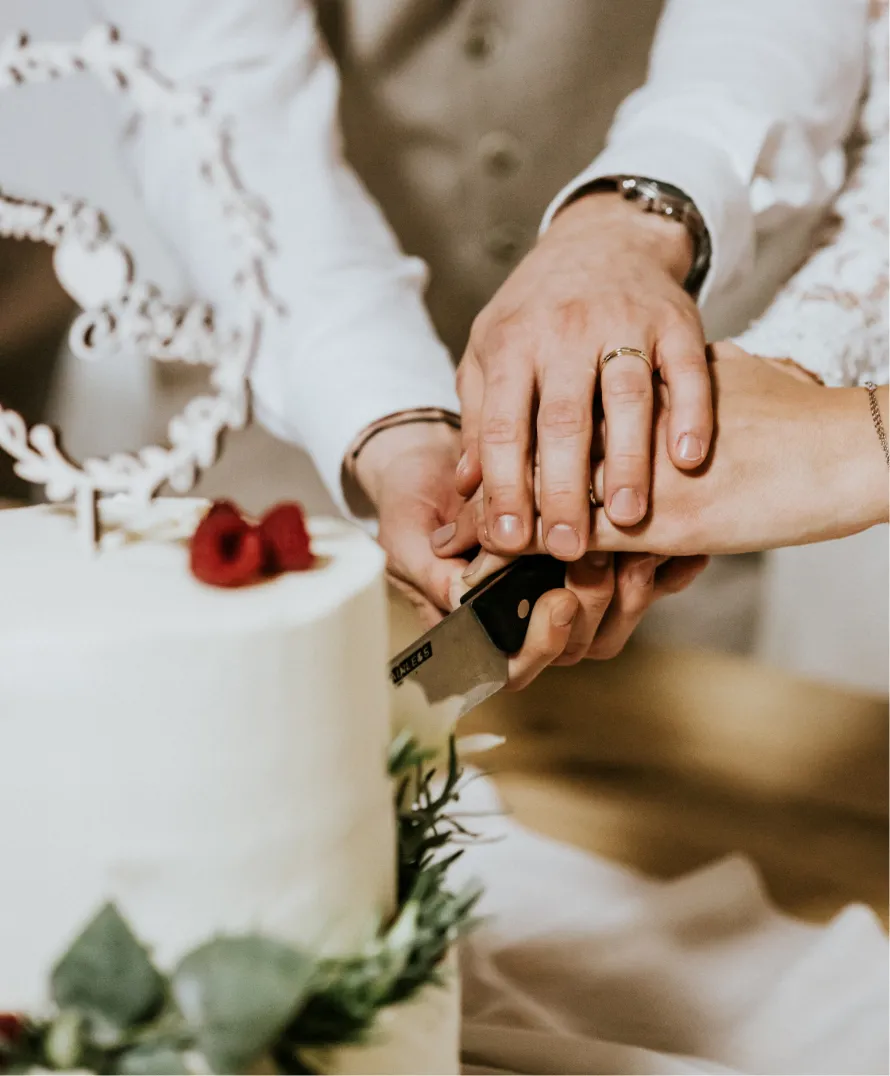
Booking your suppliers in advance and doing enough research will make you feel like you’ve made the right choice.
A note about COVID-19
The pandemic has also added another layer to health concerns. While restrictions have been lifted, you may have guests who are still considered vulnerable, and others may still feel some anxiety.
Some couples have been setting out a COVID-19 safety policy to send to guests in advance, including details like:
-
The number of people who’ll be present (guests and suppliers)
-
What parts of the wedding will be inside or outside
-
Whether or not you expect your guests to be vaccinated and boosted
-
Whether or not you’d like your guests to show proof of vaccination
-
Whether unvaccinated guests can take a lateral flow test before the day in order to attend
-
Any other safety precautions that will be in place on the day
A safety policy will make it clear what everyone is expected to do, and may bring peace of mind to those who are worried about attending a relatively large gathering.
The planning stage
Pre-wedding nerves
You might scare yourself by getting jittery before the wedding ceremony begins, or start second-guessing every decision you’ve made. Remember this is normal when you’re about to embark on a milestone event in your life. Breathe deeply and accept the nerves.
Feeling overwhelmed
Most people aren’t used to being the centre of attention, so being the focal point of an entire day can be overwhelming. Similarly to the aforementioned wedding nerves, this is a normal reaction. Focus on the positives: a group of your loved ones are here to celebrate with you. And factor in some time away from guests for you and your partner in the middle of the day so you can have a breather.
Forgetting to eat
With all the guests to greet and photographs to take, it can be easy to forget to eat. But this can make it more difficult to deal with your emotions. Take time to enjoy your wedding breakfast and a slice of cake.
Dealing with social media pressures
Many people have mixed feelings about social media. It can be an enjoyable way to keep up with friends and family across the world, but you may start comparing your life to other people’s, or feel pressure to display a picture-perfect highlight reel.
Chances are these feelings will extend to your wedding day. You might even decide to create some guidelines for guests to follow. Some couples may be happy for guests to upload posts on the day, while others may request that they hold off until it’s over. And some couples might prefer no social media at all. It’s up to you.

Managing social media at your wedding
With social media now simply part of life for most of us, it’s become another factor to consider during the wedding planning process. Approaches vary, with some couples going all out with a wedding hashtag, some restricting social media to after the ceremony, and some banning it completely (often referred to as an unplugged wedding).
If you choose an unplugged wedding or ceremony:
Let people know your guidelines in advance For example, you could include a note on the invitations or your wedding website.
Remind your guests on the day. You could display a sign at the entrance to the ceremony, or ask the registrar to make an announcement before the ceremony begins.
Put someone from the bridal party in charge of politely stopping guests from posting. Some people may need a reminder of your guidelines for the day.
Make your official wedding photos available for guests to download afterwards. A good wedding photographer will capture all guests in both posed and candid shots, so everyone should have a memento of the day they can share at a later date.
If you choose to encourage guests to share photos on the day:
Create a simple wedding hashtag. This makes it easy for you and your guests to follow along with the fun.
Consider providing a props table. It all adds to the fun and can be a great way to keep your guests entertained while the photographer is capturing the official wedding portraits.
Go all out with a designated photo spot. Whether that’s a floral wall or a custom frame, your guests are sure to be able to take some fun pictures.
Whatever you decide, let your photographer know so they can plan around it - they won’t want to capture the guests taking photos. And try not to worry about what people think. It’s more important that you and your partner are comfortable and happy on the big day.
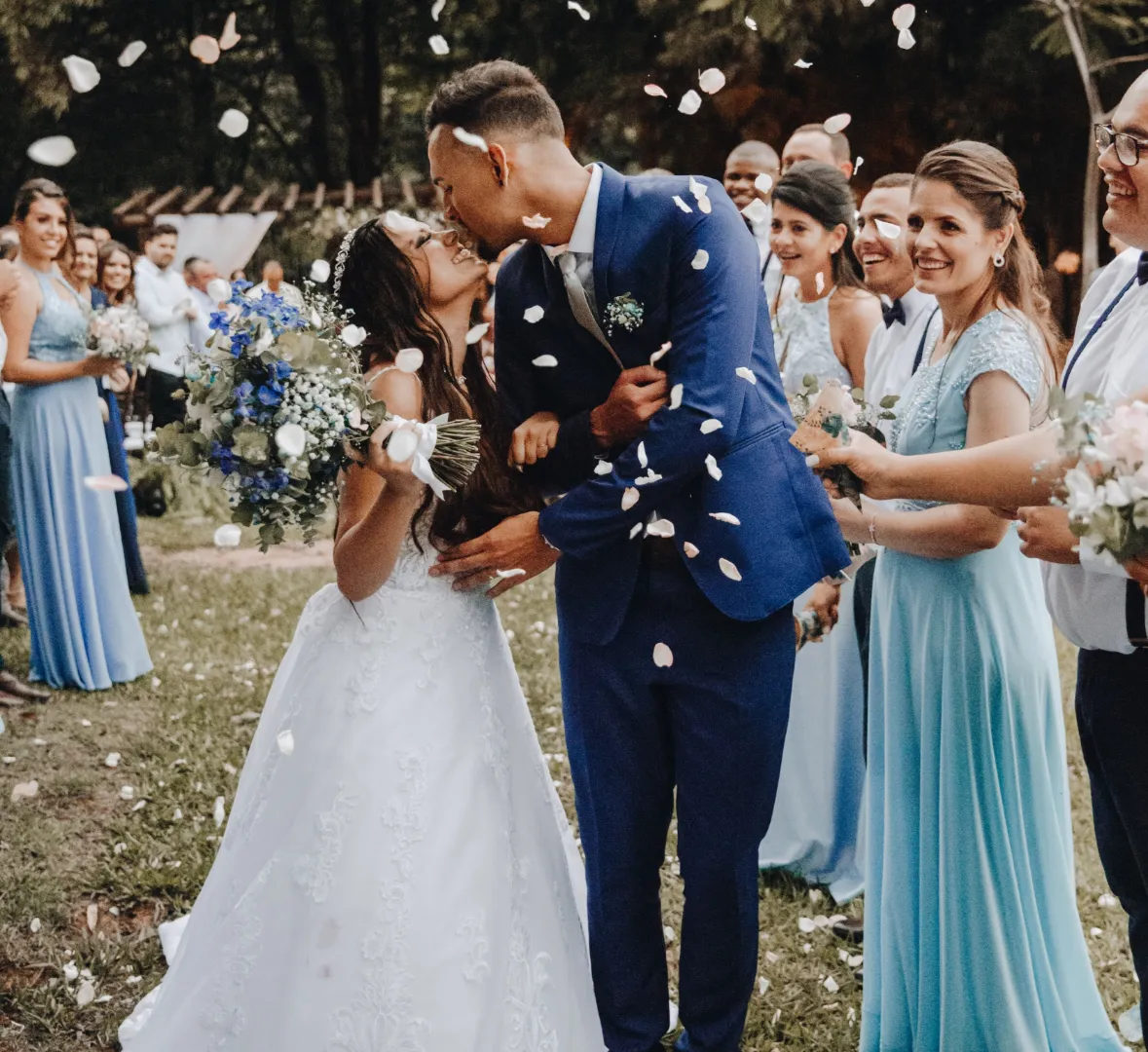
How to look after your mental well-being
Any advice for looking after your mental wellbeing is easier said than done. You might not find it a natural thing to do, especially if you’re used to being on the go all the time and prioritising other things - something that happens all too easily when you’re planning a wedding on top of your everyday responsibilities.
However, you can make the process slower and calmer by gradually incorporating good habits into your routine, going at a pace that feels comfortable for you.
Here are some things to try that will benefit your mental wellbeing.
Get a good amount of sleep
‘Good’ varies depending on the individual, but the Sleep Foundation recommends adults between 18 and 64 get seven to nine hours of sleep per night (this drops to seven to eight hours for adults 65+).
A restful night’s sleep keeps your brain healthy, allows you to grow muscle and repair tissue, and ensures you wake up feeling refreshed, meaning you’re better equipped to deal with any stressors that come your way.
This sounds simple, but stress can make it more difficult for you to get the sleep you need. However, there are some things you can do to create a peaceful environment and prepare yourself for sleep.
-
Make your bedroom dark, quiet and cool. Avoid using screens - keep your bedroom as a place for sleep and intimacy only.
-
Try to go to bed and wake up at similar times each day. Your body will get used to the routine.
-
Make exercise part of your routine, but avoid doing intense exercise close to your bedtime.
-
Write down any worries you have before you go to bed. This can stop them from lingering in your mind while you’re trying to drift off.
-
Stop drinking coffee around four to six hours before you plan to go to sleep.
-
If you still find yourself awake and restless, get out of bed and do something relaxing like reading, then return when you start to feel sleepy again.

Connect with others
Sharing any worries you have with your partner, family member, or trusted friend can go a long way in helping you to feel less alone. Maybe you know someone who’s recently been through the same thing and can provide good advice. Multiple studies have shown that verbalising your feelings creates relief, improves bonding, reduces stress and even strengthens the immune system.
And don’t forget to spend quality time as a couple. With all the chaos of wedding planning, it can be easy to forget the love that brought you together in the first place.
Do exercise you enjoy
Exercise has been found to improve mental health by reducing anxiety, depression, and negative mood, as well as improving self esteem.
The NHS recommends that adults between the ages of 19 and 64:
-
Do at least 150 minutes of moderate intensity activity, such as brisk walking, biking, dancing, or doubles tennis
-
Or do 75 minutes of vigorous intensity activity per week, such as running, swimming, team sports, aerobics, or gymnastics
-
Do strengthening activities that work all the major muscle groups at least twice a week, such as yoga, pilates, weight lifting, tai chi, or bodyweight exercises
-
Spread this exercise evenly over the week
-
Break up periods of sitting or laying down with movement
It makes sense to do something you enjoy - it’s a lot easier to keep up the habit.

Find ways to relax
It might be having a long bath; it might be going for a walk to get some fresh air. Whatever it is, make time for activities that help you to feel relaxed. Taking a break from things you have to do for things that bring you joy can give your well-being the boost it needs.
Be creative
As children, we are given plenty of opportunities to be creative, whether that’s at school or at home. As adults, these opportunities can fade as we prioritise other commitments. But creativity is a great way to improve well-being. Being completely absorbed in a creative activity can increase dopamine levels in the brain. Dopamine is a neurotransmitter, meaning it sends messages between nerve cells, and it plays a role in affecting your mood, among other things.
Doing something creative for the sake of enjoyment, with no pressure to ‘get it right’, can be freeing and also a chance to get away from screens.
Some couples choose to save money by creating their own table décor or wedding favours, but only do this if you’ll find it fun. Otherwise, it becomes another thing on the to-do list to worry about.
Spend time in nature
Recent research shows that spending 120 minutes in nature per week is good for both mental and physical well-being. Time in nature can:
-
Reduce blood pressure
-
Reduce stress hormone levels
-
Reduce nervous system arousal
-
Reduce anxiety
-
Improve immune system function
-
Improve self-esteem
-
Improve mood
Make a ‘done’ list
You probably have a to-do list for the wedding. But what about a done list? It’s exactly what it sounds like - a list of wedding tasks you’ve ticked off - and it can be a great way to stay positive about your progress.



